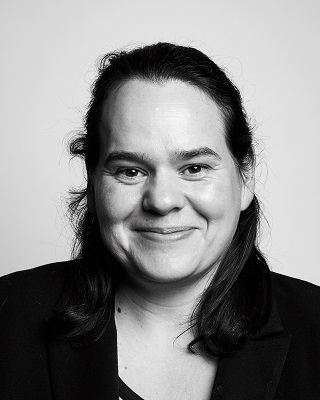Associate Professor Celia Harris
 | Vice Chancellor's Senior Research Fellow in Cognitive Neuroscience Discovering new ways to support memory, especially as we age.This cognitive scientist is researching how we bring memories to mind, and what kinds of external cues or prompts can enhance our access to memories to improve cognitive and psychological wellbeing. |
Overview
Associate Professor Harris is interested in memory - particularly the way that our internal cognitive processes interact with the external environment, including the people, objects, and devices around us.
She studies the way that people remember when prompted by different kinds of stimuli, and how they remember in conversation with others.
The aim of her research is to better understand the cognitive processes underlying successful retrieval of autobiographical memories in order to make remembering easier, especially for those who need memory support such as people who are older or people who are living with dementia.
Associate Professor Harris also studies what memory means to individuals and groups, and how we use our memories to shape our identity as well as to build and maintain relationships.
Our memories are incredibly important to us, and the simple everyday conversations we have about our past experiences have profound impacts on our cognitive and psychological wellbeing.
Impact
Memories connect us to our sense of who we are, and to the people around us. When people have difficulty retrieving memories, they can experience distress, confusion, and disconnection. Finding ways to support memory retrieval is especially important when someone is experiencing cognitive decline, as they are less able to bring memories to mind on their own.
Associate Professor Harris’s research has developed from theoretical and philosophical notions about the way the mind interacts with the environment, to controlled laboratory research to understand the mechanisms, to applied work in real-world settings, supporting people who need it.
Her research will inform the creation of environments that boost memory performance, especially in aged care environments where people may be experiencing cognitive decline and may be separated from the kinds of memory supports they have engaged with throughout their life. Her findings on the science of memory can be used to tailor programs used in aged care, and to create everyday environments that support memory all the time, through rich everyday social interactions and embedded memory supports.
She is working with aged care partners to translate her basic research on understanding the mechanisms of memory retrieval and the features of effective memory conversations into recommendations and training programs for aged care staff. Future research will evaluate these more fully.
She successfully piloted a reminiscing training program for aged care workers, in collaboration with an aged care partner organisation, which showed that aged care staff can be given specific tools and training for having effective conversations with older clients, with benefits for older people’s access to their personal memories.
Another significant impact of her research is to communicate the value of memory and of reminiscing conversations. These can seem simple and mundane, but they are incredibly important for how we see ourselves and how we connect to each other.
I aim to encourage people to make time and space for remembering - to support people to stay connected to their past and to recognise the value of sharing memories across generations.
Career
Associate Professor Harris completed her PhD at the Macquarie Centre for Cognitive Science, Macquarie University, in 2010. In her PhD research, she studied ways of extending laboratory paradigms to study social aspects of memory in ecologically valid ways.
In 2011, she was appointed Postdoctoral Research Fellow at the Center of Autobiographical Memory Research at Aarhus University, Denmark. There she worked on projects relating to the functions that autobiographical memory serves for individuals and groups, and on the way that cue qualities influence autobiographical memory retrieval.
In 2012, she returned to Macquarie University as a Macquarie University Research Fellow, and then as an ARC DECRA.
Associate Professor Harris combined her interests in social and conversational memory, memory functions, and memory cuing to study how remembering is shared in couples: the functions that conversations about the past play in supporting relationships, the ways that couples might provide a rich cuing context for each others' memories, and how older couples might remember together and support each other’s memories in the face of cognitive decline.
In 2020, she moved to the MARCS Institute as a VC's Senior Research Fellow in Cognitive Neuroscience, to study how memory can be supported across the lifespan, and was appointed Director of Impact and Engagement at MARCS from 2021.
In 2020, Associate Professor Harris was named a finalist in the NSW Tall Poppy Awards.
Key Outputs
https://psycnet.apa.org/record/2022-55809-001
https://www.mdpi.com/2076-3425/12/3/374
https://onlinelibrary.wiley.com/doi/pdf/10.1111/tops.12350
https://journals.sagepub.com/doi/full/10.1177/0265407519859440
https://journals.sagepub.com/doi/abs/10.1177/1750698014530619
https://www.abc.net.au/news/2022-05-24/forgetting-things-blame-covid-normal-brain/101091716
Collaboration
Associate Professor Harris welcomes cross-disciplinary collaborations with cognitive science, psychology, linguistics, allied health and nursing.
Collaboration with industry helps to achieve real world impact for this research, and she is interested in working with partners in the aged care, health and technology sectors.
Connect
| celia.harris@westernsydney.edu.au | |
| Phone | +61 2 9772 6570 |
| Location | Western Sydney University Westmead campus |
| Room | U.4.19 |








